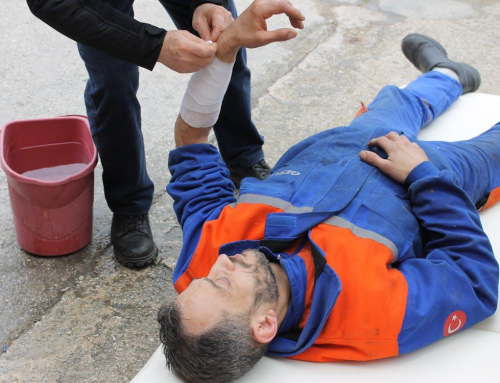British Columbia’s summers can be intensely hot, posing significant risks to outdoor workers. Businesses must prioritize the health and safety of their employees by implementing measures to prevent heat stress and dehydration. Understanding these risks and knowing how to address them can make all the difference in maintaining a safe and productive workforce.
Recognizing Heat Stress And Dehydration
Heat stress occurs when the body cannot cool itself efficiently, leading to heat-related illnesses such as heat cramps, heat exhaustion, and heatstroke. Symptoms include heavy sweating, weakness, dizziness, nausea, and in severe cases, unconsciousness. Dehydration, a condition where the body loses more fluids than it takes in, exacerbates these risks, impairing physical and cognitive functions.
Prevention Tips
Hydration: Ensure workers have access to plenty of water throughout the day. Encourage them to drink small amounts frequently rather than waiting until they are thirsty.
Rest Breaks: Implement regular breaks in shaded or cool areas to allow workers to recover from heat exposure. Adjust work schedules to avoid peak heat hours.
Proper Clothing: Encourage wearing lightweight, loose-fitting, and light-coloured clothing. Protective gear should also be designed to allow ventilation.
Acclimatization: Gradually increase workloads and allow new or returning workers to acclimatize to the heat over several days.
Training and Awareness: Educate workers about the signs and symptoms of heat stress and dehydration. Training should include first aid procedures for heat-related illnesses.
Heatstroke Awareness And First Aid
Heatstroke is a medical emergency that requires immediate attention. Signs include high body temperature, confusion, altered mental state, and lack of sweating despite the heat. If heatstroke is suspected:
- Call emergency services immediately.
- Move the person to a cooler environment.
- Apply cool water to their skin and use fans to increase air circulation.
- Provide sips of water if the person is conscious and able to drink.
Prioritize The Safety Of Your Workers This Summer!
Metro Safety Training in Surrey offers comprehensive first aid training courses, including Level 2 First Aid, to equip your team with essential skills. Their programs include:
- Emergency First Aid with CPR/AED Level C
- Occupational First Aid Level 1
- Standard First Aid with CPR/AED Level C
- Fall Protection
- Transportation Endorsement: Patient transportation and securing procedures
These courses provide valuable knowledge and practical skills that can save lives and prevent injuries in hot weather conditions.
Contact Metro Safety Training today and protect your team with specialized training that could save lives in hot conditions.








